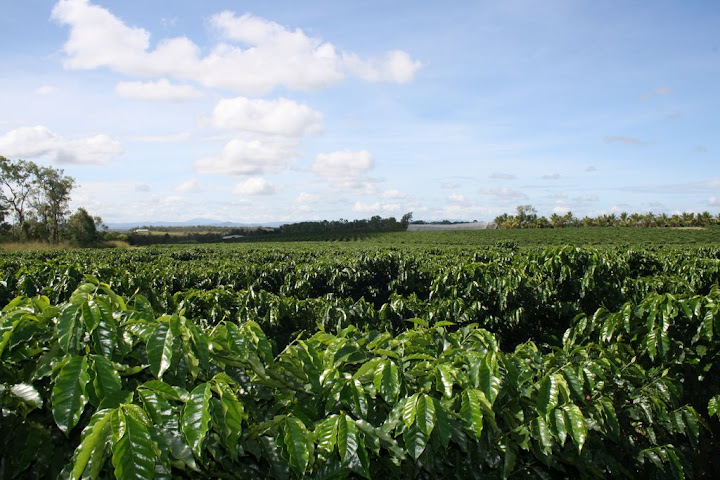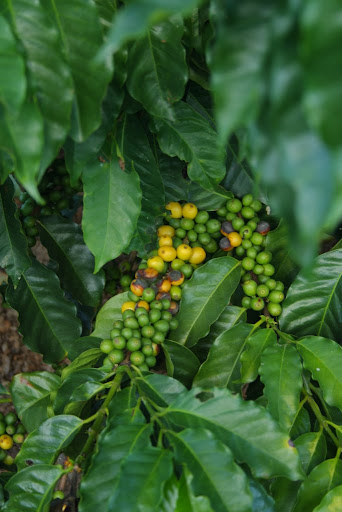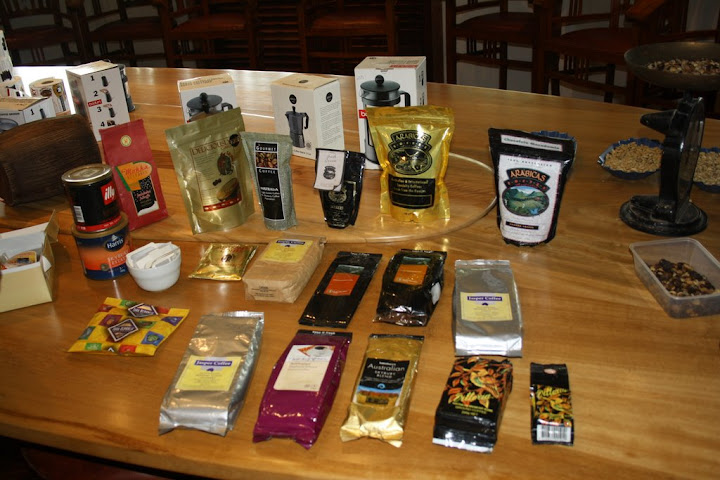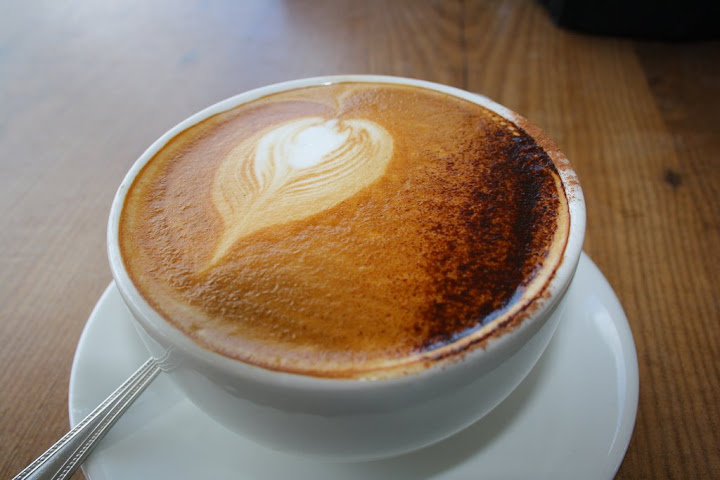I can’t help but wonder why this plantation isn’t named “sky berry” coffee plantation – given the elevation and the fact that coffee starts off as a berry. But who am I to pass judgment on a name…

I’d been looking forward to visiting a coffee plantation for a while – and the Skybury experience doesn’t disappoint (except perhaps for the coffee at the end). The Zimbabwean owner has big dreams for his farm – which is home to the Australian Coffee Centre. There’s a “Material Change of Use” notification in front of the shed and our guide mentioned plans for a luxury hotel, and it’s certainly beautiful countryside.

The plantation tour was informative – did you know for example that the average coffee tree will produce 7kg of coffee berries per year, and those will result in 1kg of green coffee beans after processing, and that will result in about 850g of roasted coffee, which will result in about 47 double shot coffees. Skybury removes coffee trees every seven years – and only harvests them in their third year of existence – that’s four years of production per tree – or 188 coffees. That’s a high end estimate because there’s a fair bit of sorting that happens between tree and cup – with a lot of beans literally not making the cut. Any beans that don’t meet particular shape, size and density requirements slide of the shaking mechanical graders and become fertiliser – or worse, instant coffee.
The owner of Skybury has also developed a revolutionary piece of harvesting technology – which is best described as a carwash like machine that thwacks the berries off the tree and collects them in a container. This is a significant improvement on handpicking – one person handpicking coffee will harvest about 12kg of green beans per day (that’s 84kg of berries) – half a 25kg coffee sack, a mechanical harvester will harvest 8 tonnes of green coffee in a day – 320 25kg sacks in a day.
Australia produces about 200 tonnes of coffee annually, peanuts as far as exports are concerned… Skybury produces more than half our annual exports. They’re a major player in a pretty small pond on the global scale.

Australian beans are in demand though – the quality control employed in our processing of beans means Skybury sells its beans to the international coffee market at about 3 times the price I pay for my green beans.
The post tour coffee wasn’t the best (or worst) I’ve ever had. It was a cappuccino with no foam at all. It seems Queensland coffee naturally comes in at either extreme of the froth spectrum if you don’t get served an iceberg sized ball of froth you get a millimeter of microfoam and coffee diluted by watery milk.
